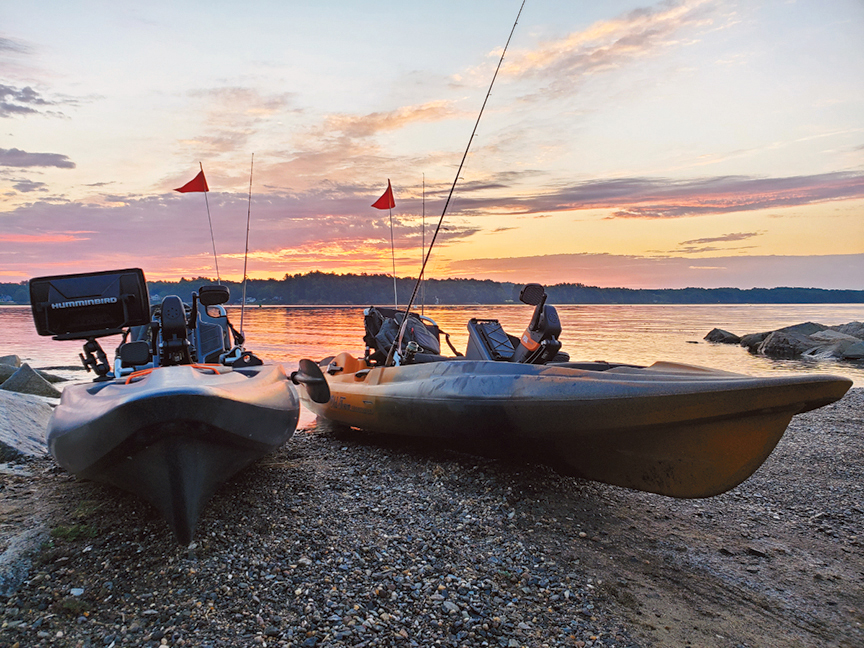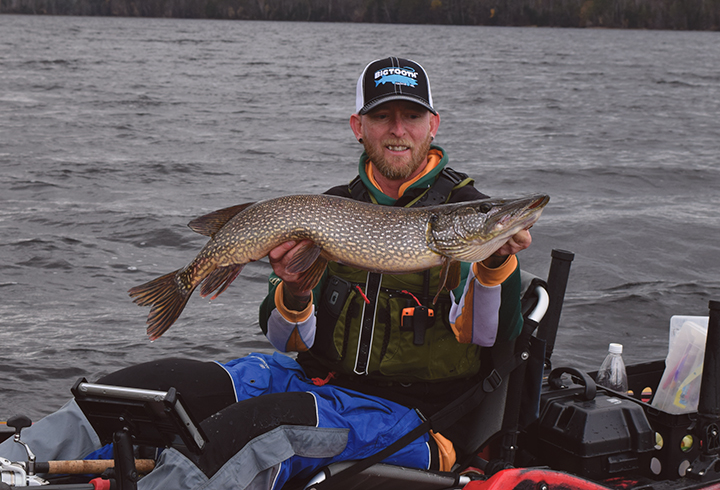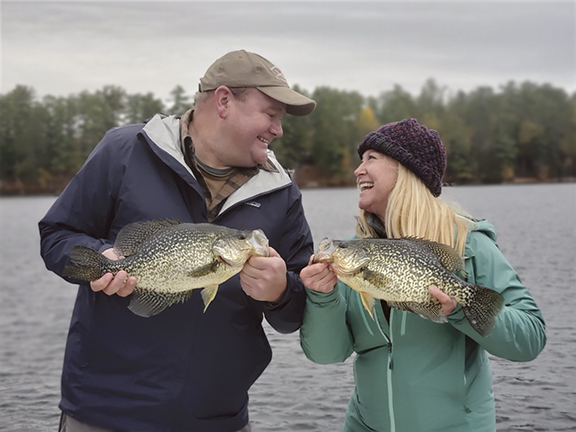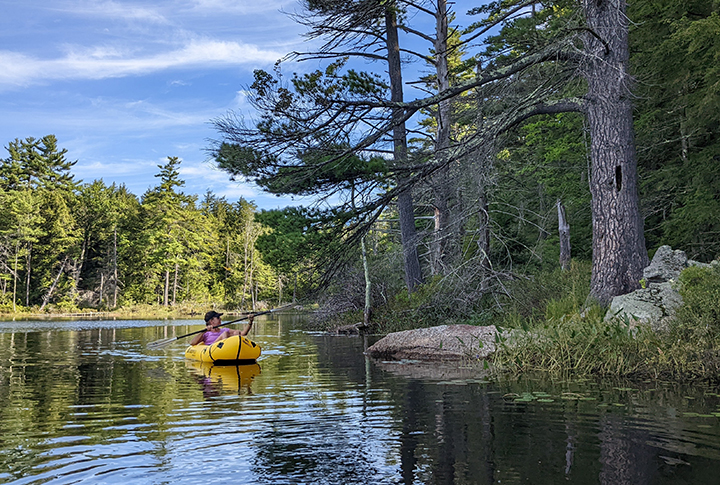Launch Etiquette For Kayak Anglers

PHOTO: Kayak fishing is the fastest growing aspect of the fishing industry. That growth means more people using ramps and launches.

By Tim Moore
Contributing Writer
Boat ramps are installed to allow boaters access to lakes, rivers, and coastal waters. This includes cartop launches. They are designed to be a source of enjoyment, but they sometimes become a source of conflict, as boaters and kayakers collide over who has more right to be there or when kayakers practice poor launch etiquette. Most of the time, when you read or hear about launch etiquette, it is in regard to boaters, but kayak anglers (and recreational kayakers) who use boat ramps also have a responsibility to practice good etiquette, but what does that look like for a kayaker angler? It isn’t always the same as it is for boaters. Here are some tips for good launch etiquette for kayakers and kayak anglers.
You Attract More Flies with Honey
If you’re a kayak angler, you may have heard the statement that boaters are the ones who pay for boat ramps. While that is partially true in some cases, the fact that boaters have more rights to boat ramp use than kayakers is a myth. State boat ramps are paid for in part by boat registration fees and Federal Wildlife and Sportfish Restoration money. The Federal Wildlife and Sportfish Restoration money is an excise tax on certain hunting and fishing gear, paid for by the manufacturer, and the money goes to states for the purpose of restoring fish and wildlife, habitat, and access. The portion of that money used for boat ramps is part of the Boating Access Program. Most states receive a dollar for dollar match on hunting and fishing license revenue, but the exact amount varies based on the size of the state and other factors. Regardless, each state is required to use 15% of their Wildlife and Sportfish Restoration money on boating access projects. These projects, along with most town and association-owned ramps, are for all to use for the purpose of launching watercraft. Kayak anglers purchase fishing licenses and fishing equipment, all of which contributes money to the Federal Wildlife and Sportfish Restoration fund as well as state funding for boat ramps. Kayak anglers with motorized kayaks pay boat registration fees. As far as town-owned ramps go, many of them are paid for with property tax money, but often grant money from…you guessed it, the Federal Wildlife and Sportfish Restoration fund. The bottom line is, kayak anglers contribute to boat ramps, but that shouldn’t matter. The ramps are for all to use. So how does this relate to ramp etiquette? Well, don’t be a jerk about who is more entitled to use boat ramps. If you see poor etiquette, offer to help in a way that encourages proper etiquette. After all, if someone is clogging up a ramp, the faster they get on the water the faster you get on the water.

Stage Your Kayak with Courtesy
Most boat ramps have a boat staging area. A place where boaters can rig their boats prior to backing down the ramp. Fishing kayaks are heavy, often weighing between 80 and 115-pounds, and that’s before they are rigged with fishing and safety gear. A fully rigged kayak is way too heavy for most kayak anglers to move from a trailer or pickup truck bed by themself. Anglers who cartop don’t have the option to pre-rig their kayak before unloading it either. Kayak anglers must unload their gear and rig their kayak at the ramp.
When you back down to a boat ramp, unload your kayak(s) and gear as quickly as you can. Set everything off to the side, park your vehicle, and then rig your boat. This allows others to use the ramp while you rig your kayak. You both win. If you need to use the restroom (or porta potty) before you head out, don’t leave your kayak in the middle of the ramp while you’re gone. I often have three kayaks to rig, one for me and one for each of my two clients that I take out. While I have a pretty good system that allows me to get all three boats rigged pretty fast, I still unload as quickly as I can to prevent holding anyone else up. Often, just making the effort to be considerate sets a positive tone with others. You’d be surprised at how many times a boater has offered to help me load or unload.
Load Now Talk Later
Kayak anglers often frequent the same ramps. There is a strong sense of community among kayak anglers, and when two or more meet at a ramp there is usually plenty to talk about. That’s great, encourage and foster that sense of community, but do it with your kayak out of the way, not sitting in the middle of the launch. This applies to boat ramps and cartop launches. I have lost count at the number of times I have pulled into a ramp before a trip, or approached one from the water after a trip, and seen a group of kayakers chatting it up, while their kayaks are spread out across the entire launch. Pull your boat off to the side if you want to chat. Then you have all the time you need, and so do others who want to launch while you talk to your new friends.

Are You Part of the Problem, or The Solution?
It is possible to be part of the problem even when you’re not the one showing poor ramp etiquette. If you pull up to a launch and see one of these heinous offenses (I’m being light-hearted) being committed, you can make things more difficult for others, you can do nothing and wait, or you can offer to help. I recommend offering to help. Being confrontational often makes people feel defensive. I have been surprised a few times when I offer to help someone who is needlessly taking up a launch when they apologize and admit they could have done things differently. Like mentioned earlier in this piece, you attract more flies with honey. When we all work together, things flow more freely and everyone gets what they want sooner rather than later, but it requires that we all (kayak anglers and boaters) work together.
Tim Moore is a full-time licensed New Hampshire fishing guide and owner of Tim Moore Outdoors, LLC. He offers guided fishing trips on Lake Winnipesaukee and kayak trips for striped bass. He is a member of the New England Outdoors Writers Association and the producer of Tim Moore Outdoors TV. For information on guided trips visit www.TimMooreOutdoors.com. You can also follow TMO on Facebook at www.Facebook.com/TimMooreOutdoors.



